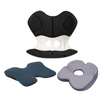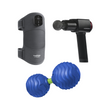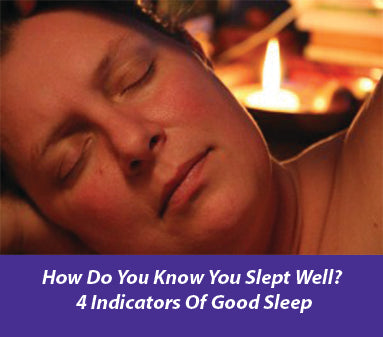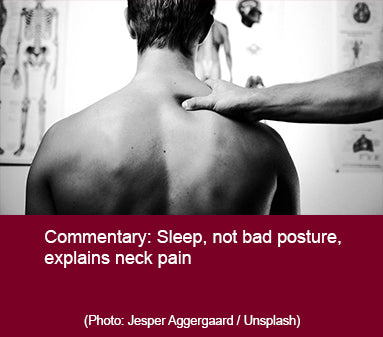Sometimes you just know you’ve slept badly, and that it’s going to be a tougher day than usual.
Other days, you might wake up with the feeling you didn’t sleep too well, but still manage to get through the day just fine.
So how exactly do you work out if you’re actually getting enough sleep, despite one or two disruptions, or if you should be worried about your sleep pattern?
The classic advice is that on average, adults need between 7 and 9 hours sleep. The reality is that it’s more complex than that.
In 2016, the National Sleep Foundation produced a major report which identifies 4 key sleep goals. These goals can be used to judge how well you sleep:
- The length of time it takes you to fall asleep.
- The number of times you wake up during the night, and how long for.
- How long it takes you to fall asleep again after waking up.
- How much sleep you get in total.
In this article, I’ll be looking at these four points, and also suggesting some ways could try to improve each one.
The research
The report was produced by a group of medical and sleep experts, reviewing 277 past sleep studies. The findings were reported in the Sleep Health journal in December 2016.
From the review, they identified a number of sleep characteristics that are useful indicators of people’s sleep quality.
They then went on to generate a set of guidelines on what represents normal sleep characteristics, based on average findings from all the studies.
It’s important to note that the guidelines are most relevant for otherwise healthy people, as there are a number of medical conditions which can affect your sleep.
In commenting on the report, sleep specialist Philip Gehrman from the University of Pennsylvania said:
Not only will it help people know when their sleep is poor…but sometimes people think they are bad sleepers when really they’re in the normal range.
The 4 sleep characteristics
1. Taking longer than 30 minutes to fall asleep
Very few people fall asleep the moment their head hits the pillow. Taking up to 30 minutes to go to sleep is normal and nothing to worry about.
If it regularly takes you longer than 30 minutes, there are some possible approaches you might consider, including:
- Try and make the hour before bed a quiet and relaxing ‘wind down’ time.
- If you’re worried about work, life, family or health, you could try some relaxation techniques.
- Try to avoid checking emails, social media or playing video games before bed.
- You may be going to bed too early, rather than when you’re tired enough to sleep.
If you’d like to explore these suggestions further, you can find more detail and additional suggestions on the sleep hygiene page.
2. Waking up too often at night
Do you wake up for 5 minutes or longer, more than once per night? Or if you’re over 65 years old, more than twice per night?
During normal sleep you go through various stages of light and deep sleep. So if you wake up a couple of times, but go back to sleep reasonably quickly, it’s probably not a problem.
But if you find you wake up lots of times, it may disturb your sleep phases and result in poor quality sleep.
If this happens to you on a regular basis, you might also want to consult your doctor, as frequent awakenings could be due to a treatable health issue, such as sleep apnea.
Equally, it could be due to other factors, such as eating a big meal late at night, drinking alcohol before bed, medication, external noise, you or your partner snoring.
3. Fall back to sleep within 20 minutes
Most people probably hope they’ll fall asleep again pretty quickly if they wake up in the night. But the researchers suggest that taking 20 minutes to fall back to sleep isn’t unusual and is nothing to worry about, especially if you’re relaxed in bed.
However, it might become problematic if you wake up in the night several times and often take that long to fall back to sleep.
If it takes you longer than 20 minutes, you might worry that you’re never going to get back to sleep again that night. In which case you might fall into the vicious circle of worrying about sleep making it even harder to get to sleep.
So if it does take you longer than 20 minutes, the experts often advise that you get out of bed for 10-15 minutes. During that time, you could do something relaxing such as reading, listening to music or having a relaxing caffeine-free drink.
Equally, it’s better to avoid the temptation of watching TV, surfing the internet, checking emails or social media.
You might also want to consider how you feel in bed. Are you comfortable and cozy? If you’re uncomfortable or you’re too hot or cold, you might want to make changes to your bed, bedding and room temperature.
Even simple things like mattress toppers, heated or cooling mattress pads, or different bed sheets and pillows can make an enormous difference.
4. You sleep for 85% of the time you’re in bed
Ideally, the best outcome is if you’re asleep for 85% of the time you’re in bed. So once you subtract the time it takes to fall asleep and any nocturnal wakings, the idea is that you’re asleep for most of the night.
If you’re within the normal ranges for the first three characteristics above, then this final point should take care of itself.
Here are the times you should aim to sleep for compared to the total time between going to bed and getting up in the morning:
- 9 total hours in bed: be asleep for 7 hours 40 minutes.
- 8 total hours in bed: be asleep for 6 hours 50 minutes.
- 7 total hours in bed: be asleep for 6 hours.
How do you know how well you slept?
Sleep professionals will often say that we’re not always the best judges of how well we’ve actually slept. In many cases, sleep studies suggest that people sleep better and for longer than they think they do.
One way of checking is to keep a detailed sleep log, trying your best to calculate the times, but without spending half the night checking your clock of course. And you could also try using a sleep tracker.
How you feel during the day
A key point really is that we’re all different, and although some people can get by on less sleep, others need a full night’s sleep to be at their best.
So as well as following these useful guidelines, an essential question is how you feel during the daytime. Do you feel refreshed when you wake up and alert all day? If not then you’re probably sleep deprived.
For me, the subjective ‘how I feel’ assessment is just as important as trying to compare your own sleep with normal sleep characteristics.
Nevertheless, if you’re not a consistently good sleeper, these guidelines will hopefully provide some clues as to which aspects of your sleep are average and which might not be normal.
And just knowing this might help you focus on one aspect at a time, rather than trying to solve all your sleep problems in one go.


![Falcon Chair [Free Footrest Worth $150]](http://ergoworks.com.sg/cdn/shop/files/Falcon_Chair_Main_Image.png?v=1757482801&width=104)























![Impact Ergonomic Kids Study Desk [Length Options Available]](http://ergoworks.com.sg/cdn/shop/files/Kidsdeskonly.jpg?v=1761728550&width=104)
![Impact Ergonomic Kids Desk & Chair [FREE Spindle bookshelf & Eye Care Lamp Worth $318.90] [Chair & Length Options Available]](http://ergoworks.com.sg/cdn/shop/files/Kids_Desk_Nov_Promo_Square_Shopify.jpg?v=1761955288&width=104)














Leave a comment
This site is protected by hCaptcha and the hCaptcha Privacy Policy and Terms of Service apply.